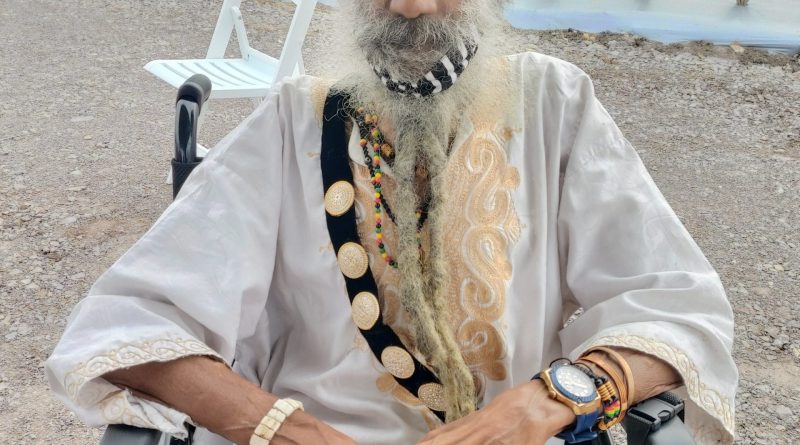Lovell credits the late Frank-I, his former teacher, with shaping the man he has become
The Leader of the United Progressive Party (UPP) Harold Lovell is adding his remembrances of Ambassador Franklin Lennox “King Frank-I” Francis to the tributes being paid to the late Rastafarian Elder.
Francis passed away early Monday, December 6, after a long period of illness.
Lovell notes that when he was a student at the Antigua Grammar School, it was Frank-I who taught him West Indian history.
He credits Francis as the individual who first brought to him a consciousness of self, and he is grateful that his teacher helped to mould him into the person he is today.
As an undergraduate student, Lovell crossed paths with Francis again on the Mona Campus of the University of the West Indies, while Francis was doing post-graduate work in development economics.
The two also played the six bass in “UWISteel,” the campus-based steel orchestra, the Political Leader recalls.
“We shared many delightful events, tours and trips around Jamaica, playing side by side and jamming a wicked bass line,” he says.
In 1996, Lovell had the opportunity to represent Frank-I as his attorney, after the Rastafarian Elder was arrested and charged for the illegal possession of marijuana, and this, he says, sparked a new relationship.
With the help of Lord Anthony Gifford Q.C., Lovell says, a decision was made to challenge the law and to file a motion under the “Freedom of Religion” section of the Constitution.
“It was an interesting landmark case, establishing for the first time in the Caribbean and in the world that Rastafari is a religion entitled to protection under the law,” Lovell remarks.
In fact, he says, the case of Franklyn Francis vs the Attorney General cleared the way for reform in schools, in prison and in the wider society.
Lovell describes the late Frank-I as a deep thinker and an intellectual who understood the global political economy and brought an uncompromising Rastafari perspective to life.
Although Francis lived in the system, he was not of the system, Lovell says, and he rejected materialism and the consumer society because he “was comfortable within the castle of his skin.”
Further, as an ambassador, Francis served the Nation without pomp or ceremony and lived a simple, humble life in keeping with his faith, Lovell says in commendation.




